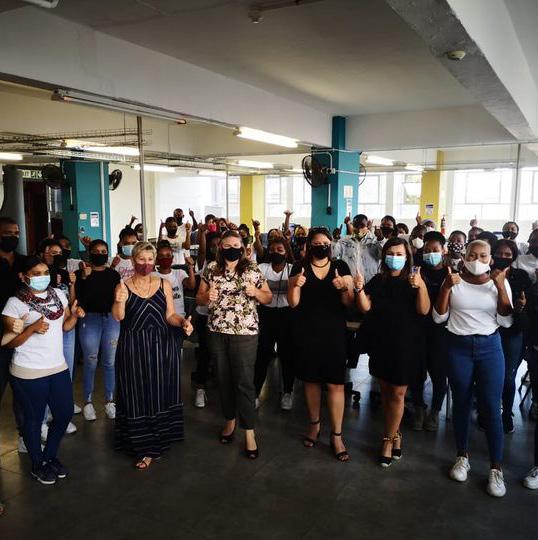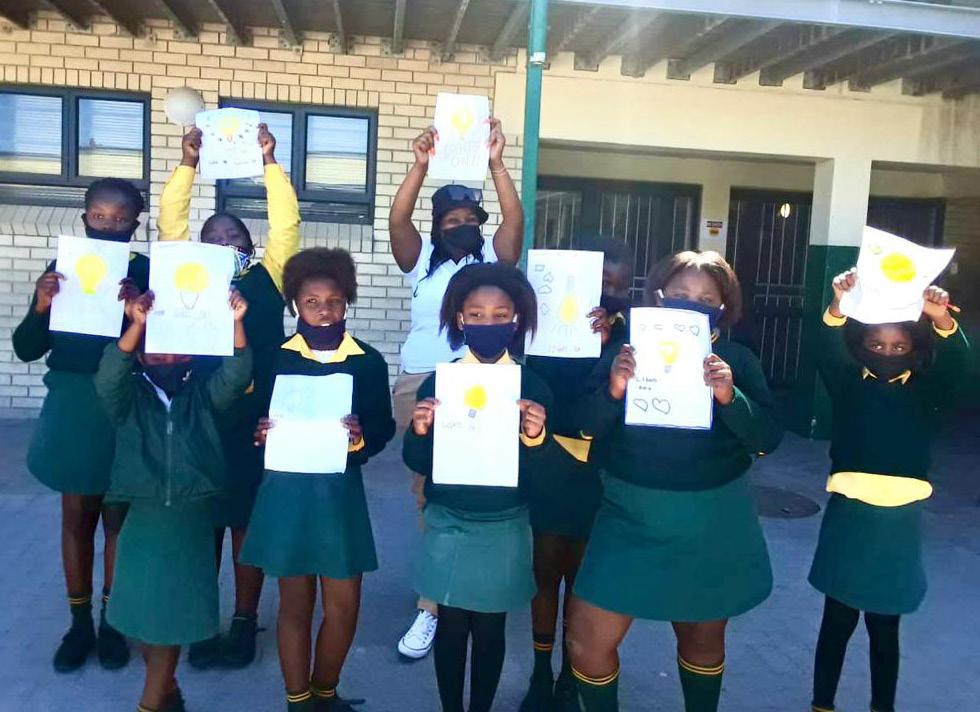
3 minute read
Eat Out Restaurant Relief Fund
WESTERN CAPE GOVERNMENT PARTNERSHIP
WESTERN CAPE GOVERNMENT: DEPARTMENT OF CULTURAL AFFAIRS AND SPORT
Advertisement
Community Chest’s strategic partnership with the Western Cape Government supports elements across our key focus areas of Education, Health, Income Generation and Community Development.
Our partnership seeks collaborative solutions to social challenges. In our focus on impactful and measurable change in both the youth and education sectors, we embarked on a formal partnership with the Western Cape Government’s Youth and After School Programme Office (YASPO) in the Department of Cultural Affairs and Sport (DCAS).
The partnership has two foci. The first is on providing 18 to 25 year olds who are NEETS with work experience and support to become active, productive residents. This is achieved through the YearBeyond Programme, a multi-stakeholder youth service initiative. The programme provides young people with meaningful work, personal and professional development, and social and economic connections to support their transition into studies or work. Each year thousands of young people’s lives are changed through the programme.
The second focus is on helping learners, through After School Programmes, find and pursue their passion. This involves advocating for After School Programmes, building the capacity of the people offering these programmes and engaging youth in running After School Programmes.
In the year under review Community Chest worked with YASPO to put the spotlight on After School Programmes, launching South Africa’s first Lights On After School Campaign and providing various training workshops to the sector.
It also worked with YASPO to grow the YearBeyond, youthservice programme. Part of the growth included bringing on board another funder, Michael and Susan Dell Foundation focused on the youth development curriculum and wellbeing support eco-system and the development of post programme opportunities. Partners YeBoneers Schools Learners (Registered)

YeBO ACADEMIC
2020 GRADUATION
11 301 66 6292
PROGRESSION STATS
Studying (full time) Working (full time or part time) NEET
TOTAL
2020 SURVEY
75 154 72 301
TRAININGS
ASP Training Youth Development Training Management Training (MEL)
TOTAL
2021 RECRUITMENT
18 2021 551 RECRUITMENT 98 8582
ACTUAL
25% 2021 51% RECRUITMENT 24% 100%
NUMBER OF ATTENDEES
135 2021 112 RECRUITMENT 65 312
TREASURE BOX WITH PARTNERS
Organisations Learners Reached
SITES
70112 62 750







LIGHTS ON AFTER SCHOOL
In October 2020, Cape Town had the honour of being the first city outside the USA to host a launch of the global #LightsOnAfterschool campaign. In collaboration with our implementing partner, the Western Cape Government’s Department of Cultural Affairs and Sport (DCAS) we celebrated the 20th anniversary at Lavender Hill Shared Sports Facility.
The launch took the form of a switch-on of the lights at the sports centre just after sunset as a symbolic gesture of support for the global campaign started in the USA in October 2000. The campaign, which will become an annual event, focuses on increasing awareness of the after school sector and its impact on improving learner outcomes, as well as on engaging all after school practitioners in activities to support the campaign.
DCAS stressed the importance of the campaign as supporting the current work done by the MOD Programme and Youth and After School Programme Office while showcasing the department’s investment in ensuring that every learner in every school in every community across the province has access to quality After School Programmes.
After School Programmes (ASPs) are organised activities for children to participate in at the end of their formal school day and include access to diverse programmes ranging from dedicated tutoring, arts and culture, sport and recreation and valuable psychosocial support. These programmes are delivered by a diverse range of practitioners, educators and coaches.
In under-resourced schools, access to comprehensive ASPs plays a key role in minimising the learning gaps that exist in the educational system and promote school retention.








